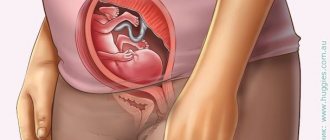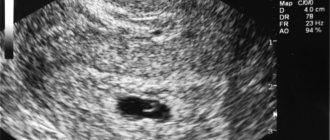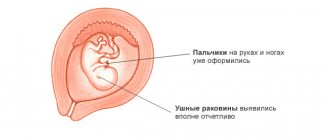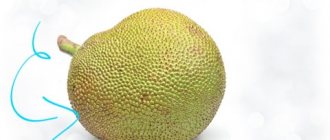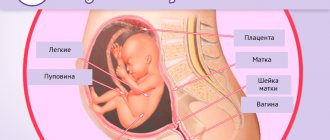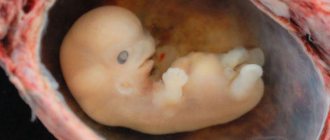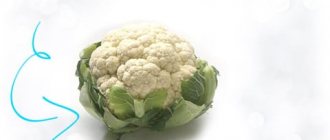With the end of the first trimester of pregnancy, the critical period of intrauterine development of the fetus ends. The baby has already developed all the organs and tissues, and the pregnant woman begins to experience new sensations. In the remaining 2 trimesters, you will not be able to relax, introducing new healthy habits and listening to the response voice of your body and the child.
Fetal development at 13 weeks of gestation
At this stage of pregnancy, the unborn child is growing at a high rate. The general proportions of his body change just as quickly - until recently, the head, which was huge in comparison with the body, does not grow as quickly as the body. Soon the fetus will acquire the proportions that are familiar to us, characteristic of small children. There is no fatty tissue yet, which will begin to grow only in the third trimester. The baby's body is covered only by skin, through which blood vessels are visible.
The fetal face becomes more expressive, the chin and nose stand out, the eyes and ears take their place. A developed nervous system allows a child to make voluntary movements, grimace, yawn, and smile. The rudiments of all baby teeth have formed in the mouth, the vocal apparatus is actively developing, and a sucking reflex has appeared.
Fetal parameters at 13 weeks:
- Weight – 15-25 g;
- KTR (coccygeal-parietal size) – 8-9 cm.
If you monitor your baby's activity, you can see that he has periods of sleep and wakefulness, and the wakefulness is quite active. The movements of the fetus are no longer chaotic, it seems that they have become orderly and more accurate. Such opportunities are provided to him by the constantly improving musculoskeletal system.
At week 13, an important event occurs - the genital tubercle differentiates into the penis in boys, or the clitoris in girls. Depending on gender, the fetus develops a prostate gland or ovaries, which occupy their designated place in the pelvic cavity. At this stage, the female fetus has the rudiments of about 2 million future eggs. After the birth of a girl, their number will decrease.
Development of fetal organs:
- Villi form in the intestines and occupy a permanent place in the abdominal cavity;
- The diaphragm rises, lifting the respiratory organs, the esophagus;
- The pancreas begins to produce its own insulin, which is responsible for glucose metabolism;
- The baby’s heart works so intensely that it can pump more than 20 liters per day;
- In place of the future ribs, cartilage tissue is formed, which subsequently transforms into bone.
The child’s psyche begins to develop - the first reactions to touch and pain, loud sounds, and temperature changes appear. The fetus acquires the ability to distinguish the taste of food, the nutrients of which enter the mother’s blood and then through the umbilical cord into the fetus’s body. Experts in prenatal psychology claim that even such a tiny child feels the emotional state of the mother, feels when they communicate with him, and is even able to determine whether the mother wants him to be born, or whether the pregnancy is unwanted.
Video about what happens to the fetus, its size, sensations, proper nutrition and much more:
Fetal development
- Motor activity increases - the baby constantly moves, developing the muscular system. The muscle tissue is already fully formed and continues to strengthen.
- At this stage of gestation, the fetus can already react to various external stimuli: harsh light, fluctuations in ambient temperature, intonations and sounds of the mother’s voice.
- The baby’s heart is fully functioning and pumps about three liters of blood per day.
- The skeletal system is developing: there are already primary ribs, the bone tissue of the skull and spinal column begins to ossify. At the 13th week, useful microelements - calcium, phosphorus - begin to be deposited in the baby’s bones, which ensure their strength.
- The active development of the brain is in full swing: due to the growth of nerve cells, its mass increases, which leads to a complication of reflex activity. At this stage of pregnancy, the cerebral cortex does not yet have convolutions, but the prerequisites for their formation - grooves - are already beginning to be laid.
- The improvement of the digestive tract, in particular the intestinal section, continues. At this stage of gestation, villi are formed, lining the mucous membrane of the small intestine and ensuring the important process of assimilation of nutrients - intestinal absorption.
- At this stage of gestation, the fetal pancreas “turns on”: together with the adrenal glands, it begins to produce the most important hormone - insulin, which regulates blood glucose levels.
- The placenta is fully formed and secretes hormones for the further successful development of pregnancy - progesterone and estrogens. Now it performs the most important functions: supplying oxygen and nutrients to the baby, as well as protection against the penetration of foreign microorganisms. From this moment on, the placenta is a reliable filter that ensures the complete safety of the baby.
- The head is no longer pressed to the chest, facial features continue to form: the brow ridges, chin, and bridge of the nose appear. The eyes are coming closer together, but are still covered with dense fused eyelids.
- The sucking reflex is finally formed, which is classified as vital after the baby is born.
- The ears are in a normal position.
- The muscles that provide facial movements develop.
- The formation of the respiratory system is completed. The baby's chest and diaphragm are constantly moving - making training breathing movements. A small amount of amniotic fluid can enter the baby's lungs, and if it contains pathogens, the risk of developing an intrauterine infection increases.
- The organs of the sound-producing apparatus are being formed. The vocal cords are already fully formed, but the glottis still remains tightly closed.
How does the uterus change at 13 weeks?
The upper pole of the enlarged uterus is located above the pubic bones. It has already gone beyond the pelvis and is easily palpable in a lying position in the form of a dense round formation. A growing uterus can cause a pregnant woman mild negative sensations, as the ligaments that support it are under increased stress.
Uterus parameters:
- Height – 13 cm;
- Width – 10 cm.
From now on, measuring the height of the uterine fundus will be a routine procedure when visiting an antenatal clinic. These results will be entered into the pregnant woman’s exchange card.
Sometimes a woman experiences unusual symptoms when a short-term tension is felt in the lower abdomen, less often a slight cramping pain. This is the uterus becoming toned, and soon relaxes again. Such contractions will be repeated until childbirth, only they will become less frequent, and the uterus will be soft and elastic.
In order for such “training contractions” to go away, it is enough to lie down and rest a little. Such conditions are provoked by walking in high heels, carrying heavy objects, and stressful situations. The doctor may recommend suppositories with papaverine or the drug Ginipral.
What does an ultrasound show?
If the obstetrician-gynecologist has not yet prescribed the first planned ultrasound examination of the fetus, then it should definitely be done at this time. The best time for it is between 10 and 14 weeks of pregnancy.
Indicators obtained during the study:
- Gestational age;
- Probable date of birth;
- Condition of the uterus and placenta;
- Number of fruits;
- The size of the fetus, its activity, developmental features;
- The presence or absence of prerequisites for chromosomal developmental abnormalities.
Since this week it is possible to evaluate fetal malformations, ultrasound is included in the screening program performed every trimester of pregnancy.
What does dull, pulling, point or cutting pain in the abdomen indicate?
Stomach pain during pregnancy is due to changes in the body, in organs associated with hormonal changes, changes in the position of internal organs, and obstetric pathologies.
Many types of these sensations do not pose a threat to the health of the mother or the condition of the fetus. Others cause significant harm and even death to the woman and the unborn child.
Pain is a reaction of the nervous system to stimuli. A symptom of many diseases, including obstetric pathologies during pregnancy. A pregnant woman experiences hormonal changes and a restructuring of many systems. They are also accompanied by this feeling.
If discomfort and pain occur, it is better to consult with your doctor about the nature of these sensations and appropriate treatment. During pregnancy, a woman is responsible not only for her own health, but also for the health of the baby.
Nature has determined that the mother’s body tries to protect the fetus from all negative influences. A plug formed from mucus in the cervix prevents pathogenic microorganisms from entering.
Umbilical cord nutrition is formed in such a way that harmful chemical compounds do not enter the fetus. The uterus itself protects the child from external mechanical influence.
At the same time, during the period of bearing a baby, the woman herself may regularly experience pain of varying intensity and nature. Each type of discomfort indicates the presence of different pathological conditions, with the exception of harmless obstetric ones associated with changes in the maternal body and preparation for childbirth.
Based on the nature, intensity of pain, and gestational age, we can talk about how dangerous the condition is.
For example, pulling, extending to the lower back and groin, may indicate a risk of miscarriage. An additional sign of the condition will be the presence of bloody discharge.
In this case, you should immediately seek medical help and undergo an examination. If you delay visiting a doctor, the frequency of contractions will become more frequent and spontaneous miscarriage will occur.
Uterine tone is dangerous regardless of how early it was diagnosed. The fetus may experience a lack of oxygen and incoming nutrients. The woman feels a sharp pain like contractions. The solid state of the uterus and lower abdomen is recorded.
In case of injury, late toxicosis, or stress, placental abruption may occur. The condition is accompanied by acute pain in the lower abdomen. Often there is internal bleeding without external manifestations in the form of discharge. Urgent hospitalization and surgical intervention are required. Without help, death will occur.
Cramps accompanied by dizziness at five to twelve weeks can be a symptom of an ectopic pregnancy. For a number of reasons, the egg was unable to enter the uterus and became embedded in the fallopian tube.
As a result of the rapid growth rate of the fertilized egg, severe pain occurs. The woman is sent for an ultrasound examination. An operation to terminate the pregnancy is prescribed. Lack of medical care will result in death for the pregnant woman.
Screening at 13 weeks
The first screening of a child's development is carried out to determine genetic and chromosomal pathologies. It includes an ultrasound and a biochemical blood test for signs of Down syndrome and Edwards syndrome. During an ultrasound examination, the thickness and transparency of the collar zone, the presence and size of the nasal bone, and the presence or absence of visible developmental defects are determined.
If the results of the study determine a high risk of abnormalities or chromosomal pathologies, the woman is sent for a consultation with a geneticist and for an additional in-depth examination. It is not at all necessary that a high risk of developing pathology will be confirmed; the screening results should not be interpreted as a final diagnosis.
Medical examination
After registration, a woman needs to undergo a series of tests and visit specialists. Data on the woman’s health will help to competently plan the management of pregnancy and childbirth.
Screening
At 13 weeks of pregnancy, a woman undergoes her first screening ultrasound. At the appointment, the doctor will determine:
- expected date of birth,
- fruit size,
- amount of amniotic fluid,
- placenta attachment site.
At 13 weeks, the baby has completed the development of all organs, so at this time it is important to undergo an examination and make sure that the pregnancy is developing correctly.
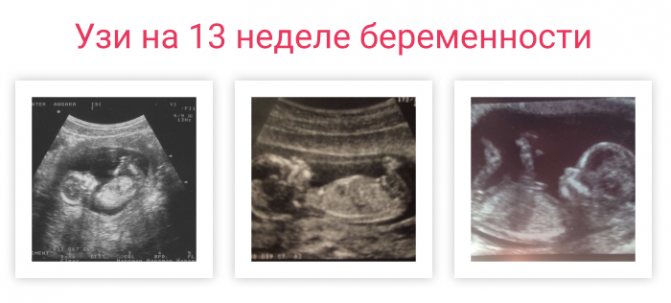
To determine the woman’s health status, a number of tests will be prescribed:
- complete blood count (CBC),
- biochemical blood test (BAC),
- general urinalysis (UCA),
- blood test for HIV, syphilis,
- genetic screening,
- smear for urogenital infections.
Visiting specialists
In addition to an obstetrician-gynecologist, a woman should consult the following doctors:
- general practitioner - will conduct a general assessment of health status and give recommendations on maintaining remission of existing chronic diseases;
- cardiologist - will assess the state of the cardiovascular system and determine blood pressure;
- dentist - will determine the need for sanitation of the oral cavity;
- otolaryngologist - if necessary, identify and carry out sanitation of chronic foci of infection (tonsillitis, sinusitis).
In addition, the gynecologist may refer other specialists based on the results of tests and medical history of the pregnant woman.
A visit to a gynecologist at this time is not necessary if you have previously contacted him with the results of ultrasound screening.
How the abdomen and mammary glands change
The body of a pregnant woman continues to change, the stomach becomes rounder, the waist becomes somewhat smoother. The pregnancy is not yet noticeable, but tight clothing is already hindering movement, limiting blood circulation and breathing. You should ditch shapewear and clothing and switch to a looser wardrobe made from natural fabrics.
The breasts continue to grow. The first “stretch marks” – stretch marks – may appear on it, as well as on the skin of the abdomen. To prevent their occurrence, you need to wear comfortable bras that firmly support the breasts, and a prenatal bandage. Wearing a bandage will have a positive effect on a woman’s well-being and relieve pain in the lower abdomen and lower back.
Feelings of the expectant mother
The most important achievement of the 13th week is that in the majority of pregnant women who previously experienced symptoms of toxicosis, they are practically not felt. Hormonal balance has been established, mood swings, excessive sentimentality, and irritability over trifles have disappeared. A woman’s high spirits are noticed by both her family and work colleagues. These changes, combined with changes in the style of clothing and shoes, gait, and appearance, make it clear to others about the change in the status of the expectant mother.
The woman began to worry less that the pregnancy could end in miscarriage. Concerns about the child’s health also decreased after the first ultrasound. Perhaps the expectant mother has established emotional contact with the baby. Thanks to this, the pregnant woman stopped experiencing feelings of anxiety and uncertainty, which has a positive effect on her well-being.
Pigment spots may appear on the skin of the face, neck and chest. There is no need to worry about this - after the birth there will be no trace of them left. Changes in the activity of the pituitary gland lead to darkening of the areola of the mammary glands, the epidermis of the external genitalia, and the strip of skin on the abdomen from the womb to the navel.
Due to decreased intestinal tone and pressure on it from the pregnant uterus, a woman may experience problems with regular bowel movements. Constipation occurs due to a sedentary lifestyle, poor diet (predominance of fats and carbohydrates in the menu). Since laxatives are prohibited during pregnancy, you need to regulate your bowel movements by consuming plant fiber and moving actively.
Perhaps the expectant mother experiences increased gas production, which was previously unusual for her. To prevent flatulence, you need to exclude legumes, cabbage, and brown bread from the menu, and consume fermented milk products more often.
“I GAVE BORN, GOT UP AND WENT”
“Over the past 14 years I have given birth to 13 children,” says Natalya Taranenko. “And I’ll give birth again, God willing.” We rejoice at every child, they are all loved and desired. We are believers, and we believe that if God gives children, he gives us the strength and health to raise them.

The 13th child in the family was born strong and healthy. Natalya admits that she is not afraid of this number with a bad reputation, since she and her husband are not superstitious people. Mom and dad gave the boy a biblical name: Seraphim were the name given to the angels who were in the heavenly army.
“I always gave birth quite easily and without complications,” admits the mother of many children. “The doctors were even surprised: she gave birth, got up and went. I think this is because my husband and children lead a healthy lifestyle, we harden ourselves, we try not to use synthetic drugs, we treat ourselves with folk remedies and use folk recipes that have been tested for centuries.
Painful sensations
Pain in the lower abdomen radiating to the lower back requires urgent consultation with a doctor. If it has the nature of spasms, accompanied by bleeding from the vagina, this is a symptom of spontaneous abortion. A miscarriage that has started can be stopped if you seek emergency help in a timely manner.
Cuts and pain during urination can be a symptom of cystitis. If it is complicated by pyelonephritis, severe pain is felt in the projection of the kidneys, and a high temperature is added to the pain symptoms.
Pain from cramps in the lower leg muscles most often occurs at night. It occurs due to a lack of microelements, most often a lack of potassium and calcium. A woman should inform her doctor about this so that her obstetrician-gynecologist can recommend vitamin and mineral complexes.
Headache may appear at the 13th week of pregnancy due to a significant increase in circulating blood volume and increased stress on blood vessels. Since it is not recommended to take painkillers during pregnancy, you need to use safe methods for eliminating headaches: resting in a cool, ventilated room, cool compresses, taking herbal decoctions.
The safest composition:
- Pharmaceutical camomile;
- Mint;
- Melissa.
Excessive consumption of lemon balm increases the risk of bleeding as it thins the blood. If the doctor does not prohibit it, for severe headaches, taking medications containing paracetamol is allowed.
Fetus
At the 13th week of development, the baby’s size does not exceed 10 cm, and its weight is approximately 27-30 grams. It moves freely in the amniotic fluid, the volume of which during this period reaches 100 milliliters.

When undergoing an ultrasound screening, the expectant mother may be interested in the incorrect proportionality of the baby. Don't worry, at this stage the baby's head is 1/2 of the body. At the birth of the baby, the ratio of head to body will be 1/4.
At 13 weeks the baby can already be called independent:
- Its pituitary gland produces its own adrenocorticotropic hormone. This hormone stimulates the adrenal glands, which in turn produce cortisol. Cortisol plays an important role in the maturation of the surfactant system, promoting the maturation of lung tissue. The baby is already making his first breathing movements with his chest. So far they are not regular and small in amplitude. But such training is necessary for proper development.
- The thyroid gland is already able to accumulate iodine and produce its own hormones: thyroxine and triiodothyronine. Fetal thyroid hormones play an important role in the processes of growth and development, especially in strengthening the baby’s skeleton and teeth.
A deficiency of thyroid hormones is manifested by delayed maturation of neurons and impaired migration of nerve cells.
- The structural units of the kidneys are sufficiently developed to independently excrete urine through glomerular filtration. When conducting ultrasound diagnostics at this stage, about 90% of studies show a full bladder of the fetus.
Urine is secreted into the amniotic fluid and, through the trans- and paraplacental pathways, enters the mother’s bloodstream, from where it is quickly excreted from the body.
At the end of the first trimester, almost all the internal organs of the child are formed. Now their development is aimed at improving the necessary functionality and harmonious growth.
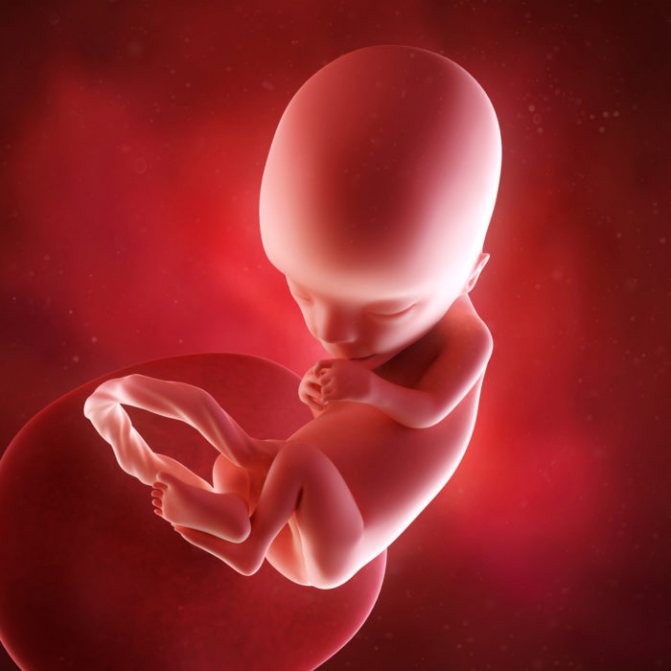
Fetus at 13 weeks of gestation
Vaginal discharge and bleeding
The nature of the discharge has changed somewhat - its volume has increased, it has become more liquid. This is how the effect of estrogen manifests itself, which began to predominate at this stage of pregnancy. If the vaginal discharge contains pus, inclusions like cottage cheese or flakes, they have a greenish or yellow color, an unpleasant odor, the woman may have a sexually transmitted infection or candidiasis (thrush).
Bloody vaginal discharge does not always indicate that a miscarriage has begun. A small amount of red or brown discharge that appears after sexual intercourse or a gynecological examination in the speculum may be a symptom of cervical erosion. This pathology must be treated after childbirth.
Other causes of atypical discharge:
- Abdominal injury, fall, blow;
- Placental abruption;
- Placenta previa;
- Weakness of the vascular walls, violation of their integrity due to an increase in blood volume.
Any atypical discharge requires careful diagnosis and treatment if necessary.
Diet
With a decrease in the symptoms of toxicosis, a woman’s appetite significantly improves. Changes in the body require high-calorie and light nutrition; it is important to provide the fetus with the necessary “building material” for full development, and not gain excess weight. Excessive body weight is an extra burden on the cardiovascular system and musculoskeletal system.
You need to exclude easily digestible carbohydrates from your menu, replacing them with vegetable and dairy dishes. It is advisable to eat less white bread and pastries, potatoes and pasta.
It is important to provide the growing fetus with sufficient protein. This includes rabbit meat, poultry, fish, veal, cottage cheese, and lactic acid products.
To prevent constipation, you should eat kefir with prunes for breakfast, eat kiwi and bananas more often, add bran to your dishes, include fresh vegetable salads, juices, dried fruits, seaweed and fresh fruits in your menu.
Recommendations from experts
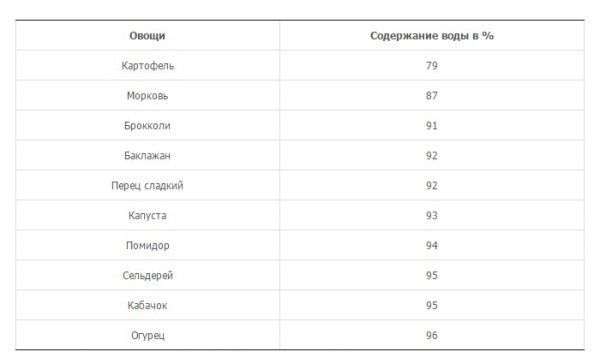
It should be noted that approaching the 13th week of pregnancy, expectant mothers begin to notice the appearance of swelling on the legs, arms and face. This factor is associated with an increased load on the kidneys and the genitourinary system as a whole, which lose their ability to promptly remove fluid from tissues.
During this period, young mothers should control their drinking regime, monitoring the amount of liquid they drink. It is very important that this amount does not exceed 2 liters daily.
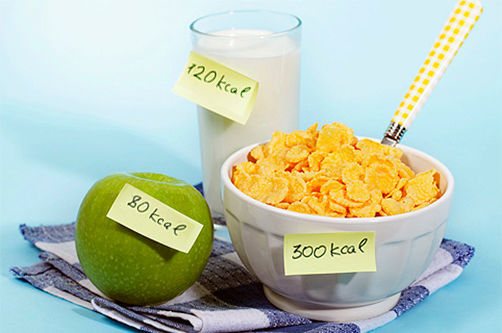
To avoid gaining too much weight, you need to monitor your daily calories.
The nutrition of the expectant mother is the most important indicator of her condition. Therefore, it needs to be monitored throughout pregnancy. There is a popular belief that during pregnancy, women should eat everything that their body requires. However, experts have a different opinion. They believe that during this period women, more than ever, should monitor everything they put into their stomachs.
Every bite you eat should be beneficial. Overeating and excessive consumption of fatty and high-calorie foods will lead to weight gain, which can negatively affect childbirth.
When a long-awaited child is born, young mothers strive to return to their former form as quickly as possible. And to achieve what you want, you need to take care of yourself not only before and after pregnancy, but throughout it. How to do it correctly, read our article and get back in good shape!
Therefore, if you suddenly want something sweet, expectant mothers should not satisfy their need with sweets and ice cream. In this case, it is more advisable to give preference to dried fruits. They will fully satisfy the need for glucose, and at the same time saturate the body with potassium and other nutrients that are so lacking during this period of a woman’s life.
What's next? And then nutrition at 14 weeks.
Alcohol and nicotine - effects on the fetus
Although at the 13th week many organs of the fetus are already formed, alcohol and nicotine have a pronounced toxic effect on it. Internal organs, the central and peripheral nervous system, organs of hearing and vision - everything can become a target of toxins. The brain is especially vulnerable, as during this period it experiences a time of intensive growth and formation of cerebral convolutions.
Both alcohol and nicotine penetrate the placental barrier and end up in the body of the unborn child immediately after consumption.
General recommendations for the 13th week
- It is not recommended to wear tight clothing, which may cause circulatory problems. It is better for a pregnant woman to give preference to loose-fitting clothes made from natural materials.
- A pregnant woman needs daily walking, but she should not be in direct sunlight for a long time. Solar radiation negatively affects the immune system and can provoke a weakening of protective barriers.
- Do not overload the body with excessive physical activity. Any physical exercise must be agreed upon with a gynecologist. If the expectant mother previously led an active lifestyle and preferred active recreation, then with the onset of pregnancy she will have to give up her previous habits. Swimming is the only sport that is not contraindicated during pregnancy.
- Nutrition should be balanced, but varied. The diet must include fresh vegetables, berries, fruits, and nuts, which serve as a source of vitamins and microelements.
- At any time, it is necessary that the environment be as calm and friendly as possible. It is very important to protect the expectant mother from stress and negative emotions at week 13, as the uteroplacental circulation is formed - a system that ensures the further normal development and growth of the fetus. Nervous stress can provoke uterine hypertonicity, which disrupts the normal uterine blood supply. In this pathological condition, the baby does not receive the necessary amount of oxygen and nutrients.
- To prevent uterine hypertonicity, it is useful to do exercises that help relax the uterine muscles. It is advisable to perform the exercises at the same time, in a calm atmosphere. First you need to relax your facial and neck muscles as much as possible, which helps reduce tension in the uterine muscle fibers. Then you should get on all fours and carefully raise your head, arching your lower back. In this case, you need to breathe as deeply and calmly as possible, maintaining this body position for 5 seconds.
- It is important to observe the rules of personal hygiene, because through dirty hands and stale linen, pathogenic microorganisms can enter the body of the expectant mother, who is very vulnerable during pregnancy. After visiting crowded places, you should thoroughly wash your hands with hot water and soap and wash your face. You cannot use other people's personal hygiene items - clothes and towels, toothbrushes, combs, handkerchiefs, cosmetics.
Sex life
The only contraindication for sexual intercourse may be low placenta previa. In this case, sex causes massive bleeding and termination of pregnancy. In other cases, intimate relationships can bring a woman a beneficial surge of emotions and improved mood at this stage of pregnancy.
A pregnant woman's libido, which decreased during toxicosis, returns to its previous level or increases due to the effects of hormones, so sexual life should not stop.
Video about sex during pregnancy, structural features of the child’s body:
